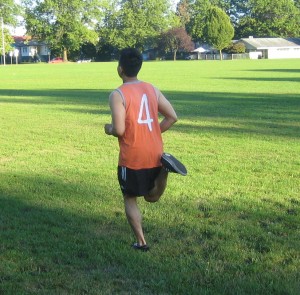Tight, stiff and tense are some of the terms used to describe muscles that have been inactive for a long period, if they were injured or if subjected to strenuous exercise. An individual who has stiff muscles is more likely to end up with physical injuries while engaging in daily activities and can become weakened and stiffer without proper care.
https://www.youtube.com/results?search_query=stiff+muscles
Exercise
Exercises such as swimming and walking on a regular basis can help improve the flow of blood. When the muscles are warm, their degree of flexibility is improved. Staying active can also help move the muscles through their normal range of motion and prevent them from contracting too much.

Stretching exercises can be highly beneficial. Warm muscles are more receptive to stretching and less likely to be damaged, thus it is vital to stretch out all major groups after warming up for 5-10 minutes or simply wait to stretch until after a cardio workout. In addition, you can also include activities that are focused on stretching such as tai chi or yoga during the weekly routine to slacken up the affected muscles.
Massage therapy
Massage therapy involves the manipulation of the ligaments, muscles and tendons through various pressing and rubbing techniques. Take note that massage is believed to help directly minimize muscle stiffness but might also indirectly reduce tension by providing stress relief and improving the blood flow.
It is also best to seek various forms of massage therapy such as deep tissue massage or gentle Swedish massage.
Pain management
In case the stiff muscles are causing pain, it is best to observe simple home care methods to properly manage the underlying stiffness. Heat therapy such as heating pads and warm showers can be used to momentarily slacken up the tight muscles and improve the flow of blood to the involved areas.
Cold therapy such as ice packs as well as cold compresses works by minimizing the inflammation. One individual might find better relief than another one, thus it is recommended to try both and apply one that works better for about 20 minutes a day. In case there is still pain, a non-steroidal anti-inflammatory drug (NSAID) such as ibuprofen can be given for relief.
Considerations to bear in mind
Some individuals end up with muscle pain due to underlying conditions that affect the whole body. The flu and lupus are examples of these conditions that can cause stiff muscles.
A doctor should be consulted if the following are present:
- Stiffness that lasts for over 3 days despite measures to minimize it
- Any unexplained severe pain
- Redness or swelling around the tense muscles
- Presence of bites or rashes on the skin
- Recently started or changed the dosage of a medication
It is best to seek emergency care if the individual experiences abrupt shortness of breath, if there is difficulty moving any part of the body or there is high fever and a stiff neck.
